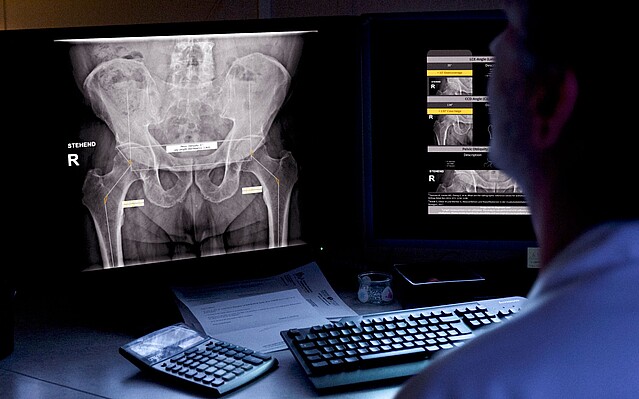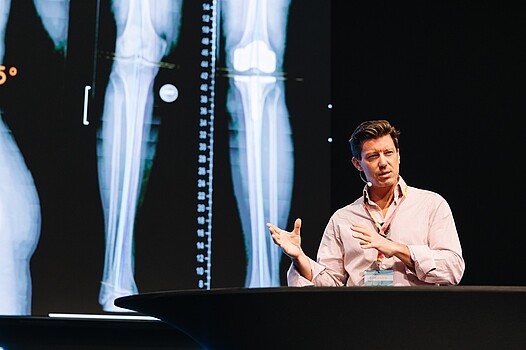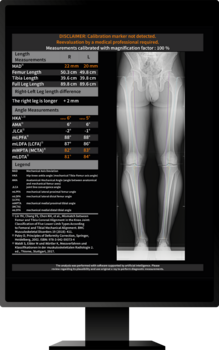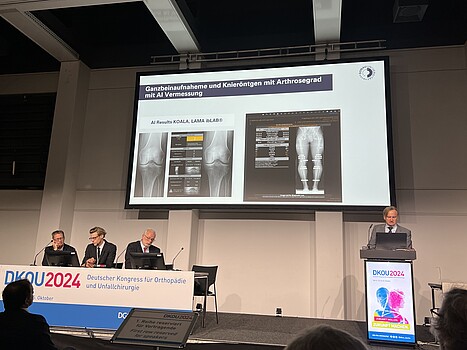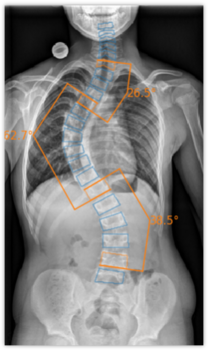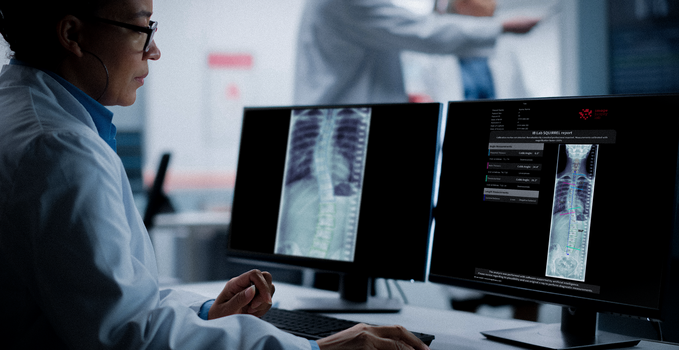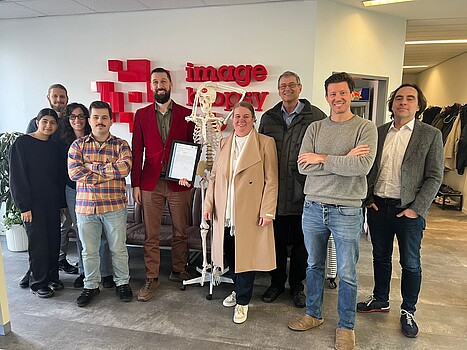ImageBiopsy Lab: Vienna-based AI is transforming radiology
November 5, 2025|KW
How a Viennese medtech company is automating routine work in musculoskeletal diagnostics—and improving the quality, speed, and comparability of diagnostic reports.
When Richard Ljuhar founded ImageBiopsy Lab in 2016, the vision was clear: artificial intelligence should assist physicians in evaluating X-ray images of the musculoskeletal system—from knees and hips to the spine and feet. The goal is to provide objective, comprehensible diagnoses that make the progression of diseases and treatments measurable and support therapeutic decisions.
A Family Affair: From Research to Marketable Product
Back in Vienna, Ljuhar and his father collaborated on various research projects. One of these focused on predicting fracture risks in osteoporosis.
“We developed novel algorithms that made it possible to derive information about bone structure from conventional X-ray images,” says Ljuhar. This project gave rise to a vision: to use artificial intelligence specifically for medical image analysis—to make diagnoses more objective, faster, and, above all, more reproducible.
With the support of the Vienna Business Agency and aws, Ljuhar then took the step of starting ImageBiopsy Lab.
Starting with five employees, the company now has an international team of around 27 experts from the fields of technology, medicine, AI research, and quality management.
“Vienna is an ideal breeding ground for innovative life sciences companies. Here, you can perfectly combine research, technology, and entrepreneurial spirit.”
Richard Ljuhar
AI for success
The underlying technology of ImageBiopsy Lab's software is based on machine learning. This means that computers learn from examples of previous cases. Thousands of X-ray images, manually marked by doctors, serve as training data: they point out to the software where joint spaces, bone angles, or fractures are located. The system learns to automatically recognize and measure similar structures in new images. ImageBiopsy Lab's solutions recognize relevant structures in seconds, measure defined parameters, and generate a structured analysis report – standardized and reproducible. This creates a reliable basis for diagnostics, follow-up care, and therapy decisions.
Welcome to the ImageBiopsy Lab Zoo
Today, ImageBiopsy Lab has seven certified modules (MDR/TÜV SÜD, partly also certified by the US FDA) on the market. They address key anatomical regions such as the knee, hip, spine, and foot, and provide standardized analysis reports that are used in radiology and orthopedic clinics in Germany, Austria, and Switzerland. Installed on-premise, they run in the background and deliver additional information directly to the image.
The products are also famous for their somewhat unusual names: KOALA, LAMA, HIPPO, SQUIRREL, FROG, and FLAMINGO. What sounds playful follows a clear logical pattern.
“Our first product was called KOALA, which stood for Knee Osteoarthritis Labeling Assistant,” explains Ljuhar. The name was so well received within the team that Image Biopsy Lab continued with the scheme. Today, all modules are part of the “IB Lab Zoo” – a digital ecosystem for musculoskeletal diagnostics.
Vienna as a hotbed for innovation
The journey from research to clinical deployment was challenging—and at the same time a prime example of Vienna's innovative strength. Just two years after its foundation, ImageBiopsy Lab received the first FDA approval (Food and Drug Administration USA, which approves a product/drug for the US market). This was followed shortly afterwards by MDR certification (Medical Device Regulation for the EU market) – a milestone that underlines the company's international ambitions. Even more significant than these successes, however, is the feedback from practitioners: radiologists, orthopedists, and hospital managers report that the software not only saves time and simplifies workflows, but also makes diagnoses more accurate and therefore more reliable.
Richard Ljuhar is certain that Vienna offers the perfect conditions for life sciences companies: excellent research facilities, strong funding opportunities, and a steady supply of talent. He particularly appreciated the support he received during the start-up phase of his company: personal advice, flexible funding instruments, and close networking.
Another advantage is that competition for skilled workers is less intense in Vienna compared to cities such as Berlin or Zurich, while the academic environment provides highly qualified talents.
“ Ten years from now, hardly any X-ray images can do without AI analysis – not to substitute physicians, but to empower them.”
Richard Ljuhar
Looking Ahead
The Team at ImageBiopsy Lab considers itself a vital link between AI development and medical practice. The interaction between research and product design is key: scientific validation and regulatory compliance go hand in hand with creative innovation.
In the long term, the company intends to further develop its platform into an intelligent, networked diagnostic solution that sets international standards. Ljuhar is convinced that AI will become an integral part of medical imaging—as a tool for enabling people to live longer, healthier, and more active lives.
ImageBiopsy Lab GmbH
Services of the Vienna Business Agency
Funded in 2018 under Healthcare funding
Multiple support under the funding Innovation
Innovation FundingFunded in International Market Entry Funding
International Market Entry Funding